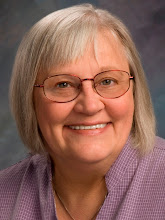If you've ever wondered how the Religious Right became so politically powerful and how evangelicals can repair the damage done by the movement, a terrific source of information is David Gushee's most recent book, The Future of Faith in American Politics: The Public Witness of the Evangelical Center. Gushee is one of the organizer's of the Compassion Forum (transcript here) and a professor of Christian ethics at Mercer University in Georgia, and one of the rare Christian leaders shining the spotlight on the moral and political issue of torture and human rights.
His book covers a lot of territory — my brand-new copy is already so dog-eared and highlighted that it's aging prematurely — but Gushee does a great job of keeping the focus on what he calls the "emerging evangelical center," a descriptive term but one that he admits is not quite precise:
...It is not quite good enough to say we should move to the center from the right and the left. Any right-center-left language is political...We need a biblically grounded rethinking of Christianity's entire engagement with American culture.
Yes! Gushee's "center" is less a compromise between right and left and more a fresh vision of the way Christians can bring their distinct perspective to the public square. Here he underscores one of the main reasons I am an independent and why I'm encouraging other Christians to become independents as well:
It is impossible both to represent "the church" and to function as a bloc within a national political party. Because no one can serve two masters, and because where your treasure is there shall your heart be also, one can predict that ultimately those Christians (and Christian organizations) that give themselves over to allegiance to a political party will lose the ability to retain their fundamental loyalty to Jesus Christ. They will meet various forks in the road in which it is either Jesus or the party; having chosen the party once and then again and again, after awhile the choice of ultimate loyalty has already been determined, and it will set the course for all future decisions.
Gushee encourages Christians to become politically independent but views that independence through the grid of the two major parties. Lately I've read a lot of political books discouraging people of faith from becoming closely associated with the two major parties, but only one author — me — actually proposes becoming a true political independent.
More tomorrow about the reasons why Christians would do well to consider registering as independents. In the meantime, and keeping in mind that Gushee writes from a bipartisan perspective, I highly recommend his book, both for Christians who are fed up with the recent history of evangelical involvement in politics, and for secular readers who want a better understanding of how the intersection of faith and politics went sideways and what's being done to set it right again.




No comments:
Post a Comment